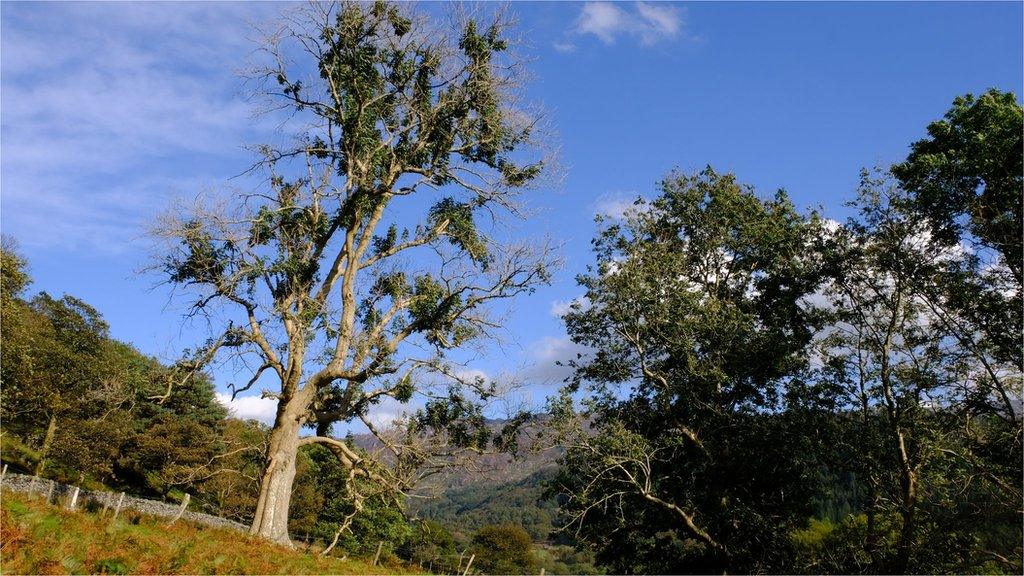Ash dieback: 'Experimental' drones to be used to plant trees
- Published
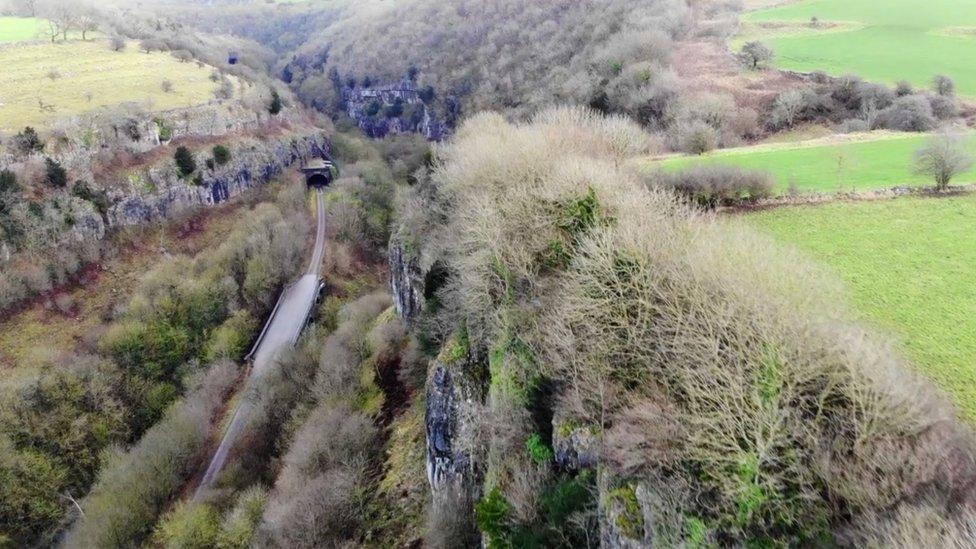
Ash dieback, which is caused by a fungus lethal to ash trees, arrived in the Peak District in 2015, said Natural England
A £5m project to save Peak District ravine woodlands will experiment with using drones to plant trees on the steep, rocky slopes.
The Life in the Ravines project, led by Natural England (NE), aims to tackle ash dieback and restore woodlands.
The Peak District is dominated by ash so without intervention the area could be devastated by the disease, said NE.
Joe Alsop, from NE, said planting using drones had not been done on any of its sites in the Peak District before.
'Challenging'
The project will focus on several woodlands and there are plans for about 200,000 trees to be planted.
Mr Alsop, senior reserve manager at the Derbyshire Dales National Nature Reserve, said the drone planting trial would be done towards the end of the five-year project, probably in 2024 or 2025.
He said tree seeds would be wrapped in a small ball of fertilizer and specially-adapted drones would broadcast them on the planting site.
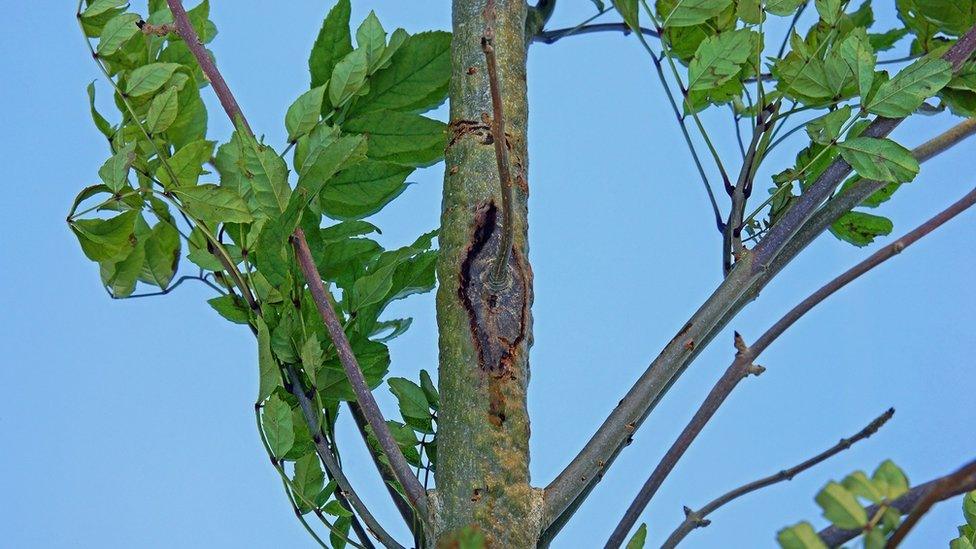
Ash dieback is causing huge problems in the English countryside
How does ash dieback develop?
"We will probably trial it on a range of different sites where planting will be really challenging," he said, adding the use of drones was "experimental".
"We don't know how effective it will be," he said. "We are not relying on it."
Mr Alsop said he understood drone planting had been done elsewhere in the UK but he did not believe it had been done in the Peak District before.
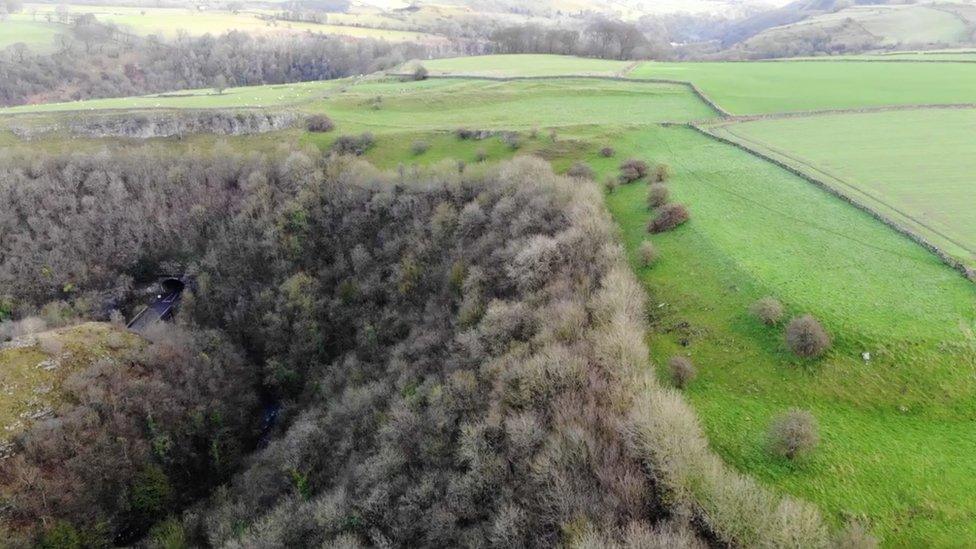
Mr Alsop said the majority of planting will not be done by drones but by NE staff and contractors
NE said the ravine forests of the Peak District have high levels of ash dieback infection and have lost mature trees.
The organisation said although lime and wych elm trees are being planted in the spaces when ash have died, they won't give up on ash and will find species that might be resilient to the disease.
The project has received £3.6m in funding from the EU Life programme, as well as funding from the Derbyshire Wildlife Trust, the National Trust and the Chatsworth Estate.
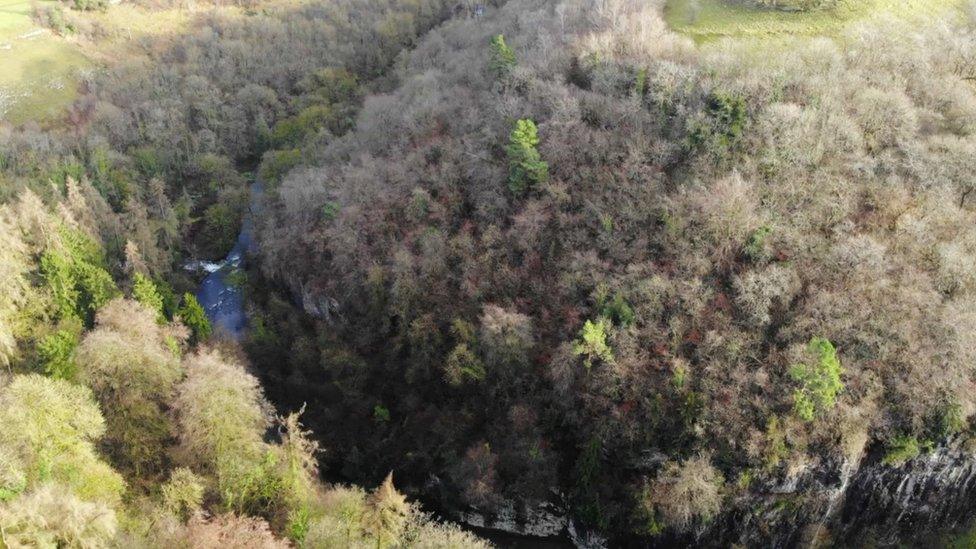
NE said the loss of ash threatens all the woodland wildlife, from rare beetles and moths to birds such as redstarts

Follow BBC East Midlands on Facebook, external, Twitter, external, or Instagram, external. Send your story ideas to eastmidsnews@bbc.co.uk, external.
- Published2 October 2020
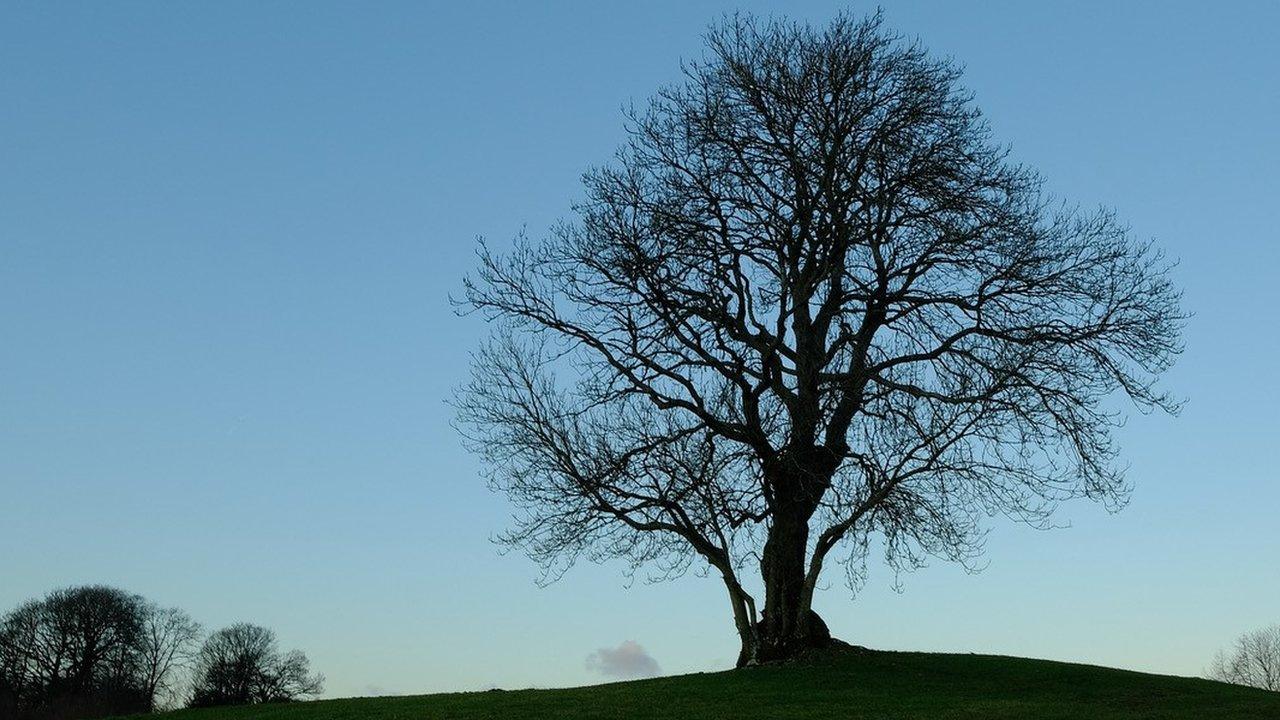
- Published8 May 2020
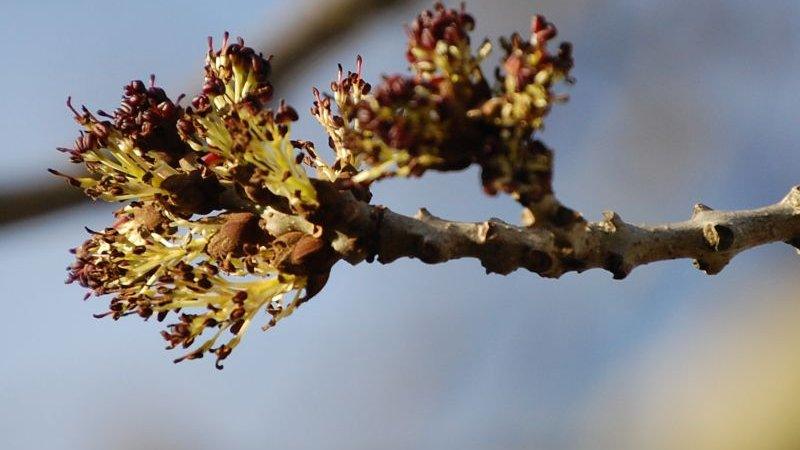
- Published18 November 2019
